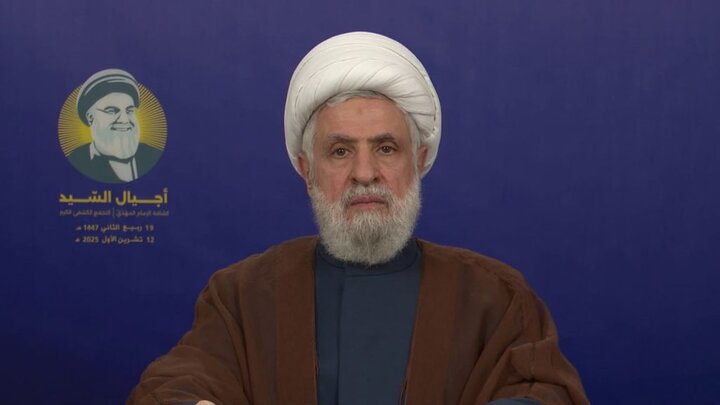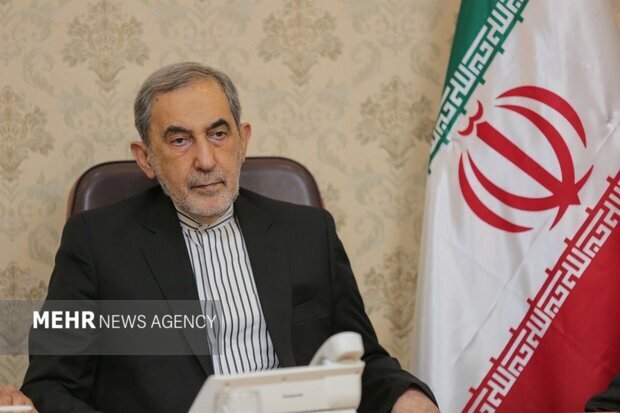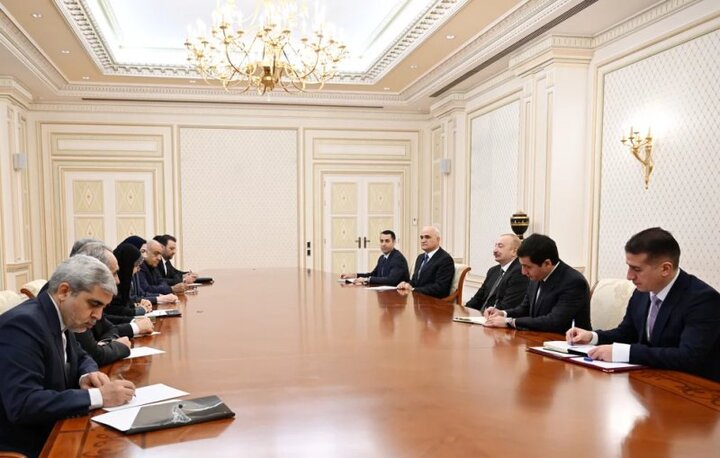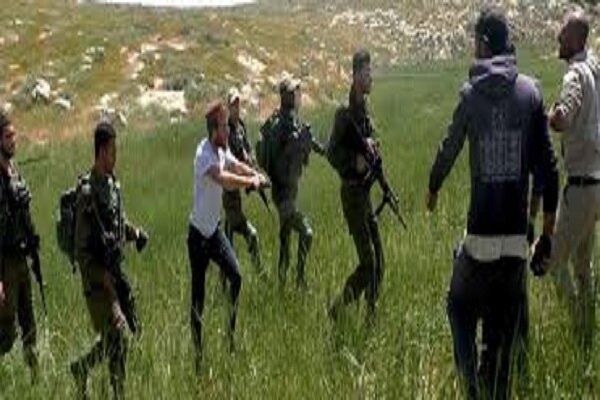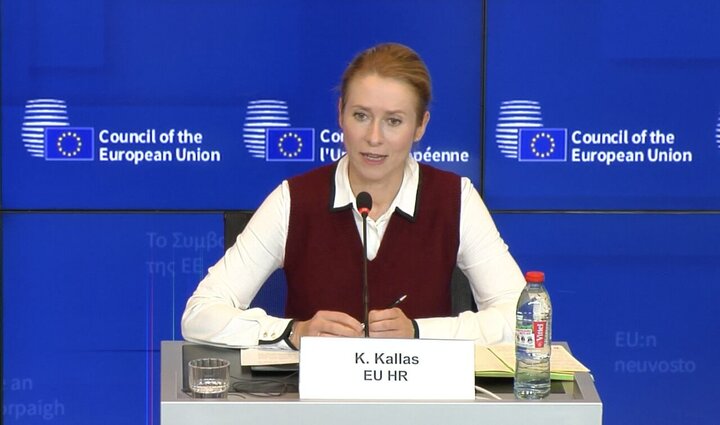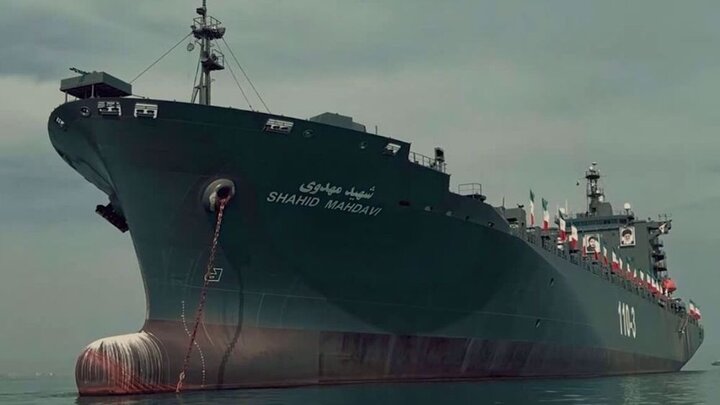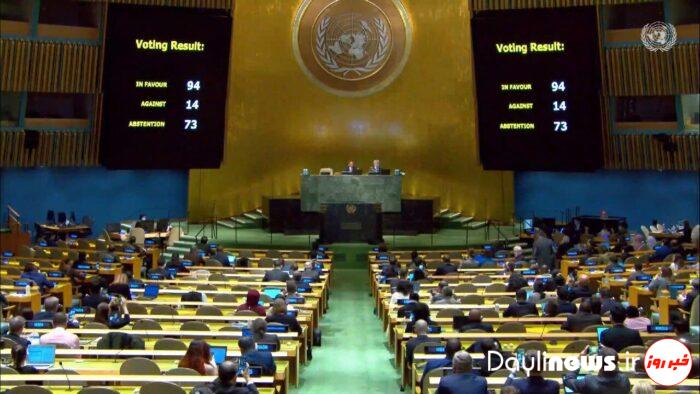
Iranian authorities say the reason behind the decision to reject the resolution was that it was a first of its kind in the history of the UN that could legitimize efforts by Western governments to loot and confiscate the assets of the Russian people in other countries under the pretext of paying for damage inflicted on Ukraine in the war with Russia.
Iran’s Ambassador and Permanent Representative to the UN Amir Saeed Iravani said the adoption of the resolution went beyond the domain of responsibilities of the UNGA as he insisted that the move would do nothing the resolve the conflict in Ukraine while enabling certain countries to use it for their own political purposes.
“The Iranian government deems any move and any decision based on the executive terms of this resolution as having no legal base,” Iravani said.
He said there is a need for the UN to protect its independence in investigating issues related to the current conflict in Ukraine.
UNGA resolutions are not binding but they can impact international decisions while facilitating moves to adopt resolutions in the UN Security Council.
Experts have described the UNGA resolution on Russian reparations for Ukraine as a defeat for Western governments as the resolution failed to win outright majority in the UNGA.
They also say that such non-binding resolutions could be used by Western governments to advance their political objectives and to ignore accepted principles regarding the need to protect the assets and properties of governments around the world.
The resolution is a first of its kind in the history of the UN as it seeks to set up a vague mechanism that enables the UNGA to document war damage.
Following is the text of Iravani’s statement on the UNGA resolution on Russian reparations for Ukraine:
Mr. President,
1. I align myself with the statement delivered by the distinguished representative of Eretria on behalf of the like-minded group, and I wish to add the following in my national capacity.
2. The Islamic Republic of Iran, on a number of occasions, has expressed its clear, consistent, and unwavering position with regard to the ongoing conflict in Ukraine.
3. As a founding Member of the United Nations, the Islamic Republic of Iran strongly supports fundamental principles of international law and the purposes and principles of the United Nations as enshrined in its Charter.
4. In the same vein, Iran has long been advocating the Declaration on the principles of Law concerning Friendly Relations and Cooperation among States in accordance with the Charter of the United Nations and reaffirming the basic principles contained therein particularly underlining that all States shall refrain in their international relations from military, political, economic or any other form of coercion aimed against the political independence or territorial integrity of any State.
5. Regrettably, the same countries that emphasize “the importance of maintaining and strengthening international peace founded upon freedom, equality, justice and respect for human rights, and of developing friendly relations among nations irrespective of their political, economic and social systems or the levels of their development”, were, and are continuing to be, at in the forefront of violating these very principles elsewhere.
6. The Islamic Republic of Iran supports the United Nation’s ongoing efforts to find a peaceful solution to the Ukraine conflict. The United Nations should maintain objectivity and impartiality in order to play a responsible and constructive role in the political settlement of this conflict.
Mr. President;
7. The draft resolution A/ES-11/L.6 contains languages that fall outside the purview of the competence of the General Assembly, as according to Article 39 of the Charter, the General Assembly has no authority to determine the existence of an act of aggression. Furthermore, the GA Resolution 3314 of 14 December 1974, based on the same Article of the Charter, calls on the Security Council to determine the existence of an act of aggression.
8. We must not tolerate abusing General Assembly for the furthering narrow interests of a group of States by shrinking the role of this august body to a rubber stamp, as this would result in further undermining multilateralism and the rule of law at the international level.
9. If agreed upon, the proposed mechanism would have no actual contribution to the peaceful resolution of the conflict; rather it would serve only as a political tool in the hand of a group of States.
10. The problem here is that the main sponsors of this draft resolution, in a blatant double standard, apply different criteria in other conflicts of the world, such as Syria, Palestine, Afghanistan, Yemen, and so on.
11. We share this view that if an international Mechanism is to be established to investigate violations of international law caused by state wrongdoing and assess its reparations, it should be a mechanism with a broad mandate that could address any instance of international wrongdoing committed by any State and address all incidents and demands for reparations including those arising from international responsibility for military aggressions, looting blockades, unilateral sanctions, and occupations, apartheid, as well as provision of WMDs including chemical weapons to the brutal regimes like the Saddam Hussein.
12. The Islamic Republic of Iran emphasizes the inviolability of the jurisdictional immunities of States and their property, which are generally accepted as a principle of customary international law. The Islamic Republic of Iran, hereby, registers its strong objection to any mechanism that may undermine this well-established principle of international law. We would like to record that, any acts or decisions that may be derived from the mechanism referred to in OP3 and OP4 of the draft resolution will have no legal status and will thus be null and void.
I thank you, Mr. President
**1583**
Follow us on Twitter @DayliNews_ir
